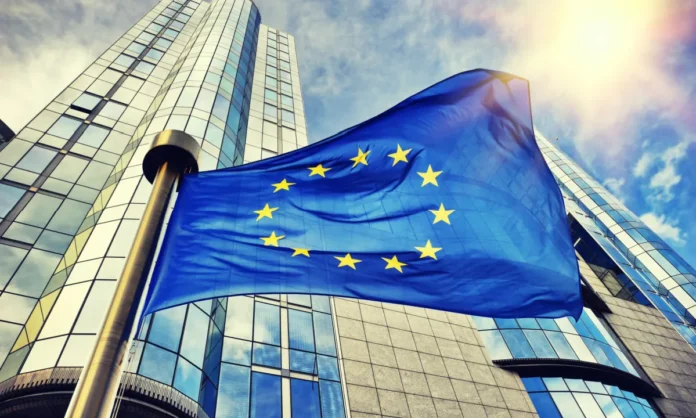
Sex, porn, and prostitution aren’t going anywhere anytime soon. Regulation of adult entertainment is diverse across the globe, with particularly interesting points of difference across Europe.
From areas like the Netherlands and Barcelona to the far more conservative Italy, here’s everything you need to know about adult entertainment regulations across Europe.
EU Regulation
Whilst different countries have their own laws and restrictions in place, the European Union has been pushing for more uniform regulation across its member countries – especially laws concerning the protection of minors and the prevention of human trafficking.
With sex, sexuality, and sex work generally viewed and discussed more openly, more countries and establishments are putting human safety first.
One of Europe’s largest escort directories, Erobella, is paving the way for a safer, more positive approach to the sex industry and adult entertainment. Erobella’s mission focuses on creating a safe, supportive community for workers in the profession – regardless of background, sexual orientation, or gender. With a zero-tolerance policy on coercion and exploitation, the site is working with self-determined adult entertainers in an effort to build a brighter future for the industry.
Western European Regulations on Adult Entertainment

The rise of the internet has made regulation far more complex, with many countries struggling to enforce age verification and content restrictions effectively.
The UK has stringent regulations concerning adult entertainment. The Digital Economy Act 2017 introduced age-verification requirements for online adult content, although its implementation has faced delays and challenges. It has also placed pressure on adult sites, with restrictions on how they can promote their businesses – making SEO ratings and optimized Google settings more important than ever. For physical venues in the UK, such as strip clubs, local councils manage the rules and regulations.
Across the sea, France has a mixed approach. While adult content is accessible, there are strict regulations regarding the protection of minors. The government has also pushed for stronger measures against non-consensual pornography, whilst physical venues are subject to local licensing and zoning laws.
Of the three, Germany has a relatively liberal approach, particularly in Berlin and Hamburg, where the adult entertainment industry is significant. Prostitution is legal and regulated, with workers required to register and undergo health checks. Online adult content is regulated but accessible, provided it complies with youth protection laws.
Northern European Regulations
In Northern Europe, Sweden adopts a restrictive stance on adult content, particularly online. The country is home to influential anti-pornography advocacy groups, and there is ongoing public debate about the societal impact of adult content. Prostitution is illegal under the “Swedish model,” which criminalizes the purchase of sex rather than the selling, aiming to reduce demand.
In contrast, Denmark has a more permissive approach, with a well-regulated adult entertainment industry. Pornography was legalized in Denmark in 1969 and remains widely accessible. However, the country imposes restrictions on content that depicts violence or degradation, ensuring that adult material adheres to certain ethical standards.
Southern European Regulations

In the south, in Italy, the regulation of adult entertainment is shaped by a conservative approach, heavily influenced by the Catholic Church’s strong presence. Although adult content is accessible online, there are considerable restrictions, especially regarding its broadcast on public platforms. Physical venues, such as strip clubs, are subject to stringent local regulations that control their operation and location.
In contrast, Spain takes a notably more liberal stance, particularly evident through its flourishing adult entertainment industry, which thrives in cosmopolitan hubs such as Barcelona and Madrid.
This industry, along with a relatively permissive cultural outlook, reflects Spain’s broader societal openness toward adult entertainment. However, the landscape is not without its complexities. The regulation of prostitution remains a highly debated and contested issue.
Although it is decriminalized, enforcement of laws and regulations varies significantly across Spain’s autonomous regions, creating an inconsistent framework that complicates oversight. The Spanish approach illustrates a nuanced balancing act—on one hand, embracing liberal attitudes toward adult entertainment, while on the other, grappling with the ethical, legal, and social challenges posed by prostitution and related activities.
Ongoing debates around legal reform highlight the tension between progressive ideals and the need for more comprehensive regulation to address issues like exploitation and public safety, reflecting Spain’s struggle to harmonize these contrasting elements.
Eastern European Regulations

In Poland, the regulation of adult entertainment is marked by a conservative approach, heavily influenced by the Catholic Church. While adult content is available online, there is increasing pressure for tighter regulations, particularly aimed at safeguarding minors. The conservative climate in Poland reflects broader societal values, with ongoing debates about the impact of adult content on public morality and youth.
In contrast, the Czech Republic is recognized for its liberal attitude towards adult entertainment, with Prague serving as a hub for the industry, including significant adult film production.
The Czech government prioritizes regulation to prevent exploitation within the industry and to ensure the safety and rights of workers. This balanced approach allows the industry to thrive while maintaining ethical standards and worker protections.
In Russia, although not part of the European Union, the country’s strict stance on pornography influences the region. Russia enforces severe penalties for the production and distribution of pornography, and online access to adult content is heavily restricted and closely monitored by the state. These measures reflect the Russian government’s broader control over media and the internet.
Europe is profoundly split on the issue, with countries adopting a broad spectrum of policies ranging from highly permissive to extremely restrictive. These divergent approaches are shaped by a complex blend of cultural, religious, historical, and political factors. In some nations, liberal values and secularism drive more permissive legislation, while in others, deep-rooted religious traditions and conservative political ideologies result in stricter regulations. This variety reflects the continent’s rich diversity, where each country’s unique identity plays a crucial role in shaping its stance on the matter.











